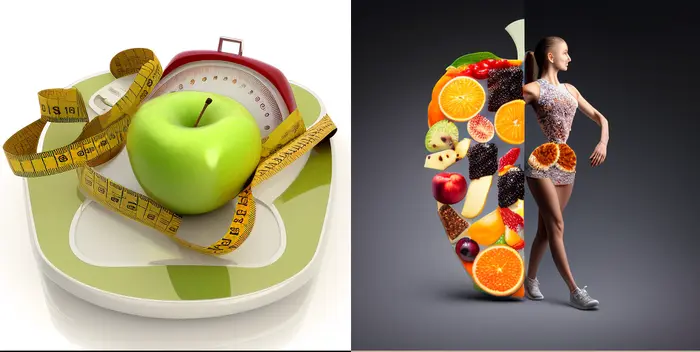How does nutrition affect weight loss
“Discover the essential role of nutrition in weight loss and learn how to create a balanced diet that supports weight loss, improves overall health, and prevents nutrient deficiencies. Learn about macronutrients, micronutrients, calorie density and healthy eating habits for weight loss success.” How does nutrition affect weight loss
Nutrition plays a crucial role in weight loss, and understanding the impact of food on our bodies is essential for achieving our weight loss goals. In this blog post, we’ll explore how nutrition affects weight loss, including the importance of calorie control, nutrient-dense foods, a well-balanced diet, portion sizes, and timing.
First and foremost, it’s important to understand that weight loss is a result of creating a calorie deficit. This means that we need to burn more calories than we consume. One way to do this is through regular exercise, but nutrition also plays a significant role. To lose weight, it’s essential to focus on nutrient-dense foods that are low in calories, such as fruits and vegetables, lean protein, and whole grains. These foods will help keep you feeling full and satisfied while also helping you achieve your weight loss goals.
It’s also important to focus on the quality of the food we consume. Processed foods, foods high in sugar and saturated fats, and sugary drinks can contribute to weight gain and should be avoided as much as possible. Instead, we should focus on whole, unprocessed foods that are packed with nutrients and low in calories.
Protein is another essential nutrient for weight loss. It helps keep us feeling full and satisfied, which can help reduce our calorie intake. Additionally, protein helps to maintain muscle mass, which is important for burning calories and achieving weight loss. Good sources of protein include lean meats, fish, eggs, and plant-based options such as beans and lentils.
Another important aspect of nutrition for weight loss is to stay hydrated. Drinking enough water can help reduce hunger and increase feelings of fullness, making it easier to stick to our weight loss goals. Aim to drink at least 8 glasses of water per day and try to limit sugary drinks and alcohol.
A well-balanced diet that includes all essential nutrients is also important for weight loss. Eating a variety of fruits, vegetables, whole grains, lean proteins, and healthy fats provides the body with the necessary vitamins, minerals, and antioxidants it needs to function properly. Additionally, a well-balanced diet can reduce cravings and prevent overeating.
Portion control is also an important factor in weight loss. Eating too much of even healthy foods can lead to weight gain. Use measuring cups, a food scale, or your own hand to estimate portion sizes and be mindful of how much you’re eating.
Finally, timing is also important for weight loss. Eating at the right time of day can help regulate hormones that control hunger and metabolism. Eating a healthy breakfast can jumpstart our metabolism for the day, and eating a small snack or meal every 3-4 hours can keep our energy levels stable and prevent overeating.
Weight loss is a complex process that requires a combination of regular exercise and a healthy diet. Nutrition plays a crucial role in achieving weight loss goals, and it’s essential to focus on calorie control, nutrient-dense foods, a well-balanced diet, portion sizes, and timing. By following these guidelines, we can achieve our weight loss goals while also improving our overall health and well-being.
Another important aspect of nutrition for weight loss is understanding the role of macronutrients. Macronutrients are the three main types of nutrients that provide energy to our bodies, including carbohydrates, protein, and fats. Each macronutrient plays a different role in weight loss, and it’s essential to understand how to balance them in our diet for optimal results.
Carbohydrates are the body’s primary source of energy and are essential for proper bodily function. However, consuming too many refined carbohydrates such as white bread and sugary foods can lead to weight gain. Instead, it’s important to choose complex carbohydrates such as whole grains, fruits, and vegetables, which provide essential nutrients and fiber.
Protein is an essential macronutrient for weight loss as it helps to maintain muscle mass and keeps us feeling full and satisfied. Good sources of protein include lean meats, fish, eggs, and plant-based options such as beans and lentils.
Fats are also an essential macronutrient, but it’s important to choose healthy fats such as those found in nuts, seeds, avocado, and olive oil. Avoid saturated and trans fats found in processed foods and fried foods as they can lead to weight gain and increase the risk of heart disease.
In addition to macronutrients, micronutrients also play an important role in weight loss. Micronutrients include vitamins and minerals that are essential for proper bodily function. Eating a variety of fruits and vegetables provides the body with essential vitamins and minerals, and can help to reduce cravings for unhealthy foods.
It is also important to note that weight loss is not always about cutting out certain foods or drastically reducing calorie intake. Instead, it’s important to focus on a sustainable, healthy diet that can be maintained long-term. This means finding a balance between healthy eating and allowing yourself the occasional treat.
In conclusion, nutrition plays a crucial role in weight loss and understanding the impact of food on our bodies is essential for achieving our goals. By focusing on calorie control, nutrient-dense foods, a well-balanced diet, portion sizes, timing, macronutrients and micronutrients, and developing a sustainable diet, we can achieve our weight loss goals while also improving our overall health and well-being.















